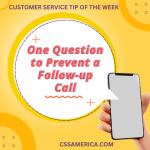Veronica has gone to the same automotive service shop for at least 20 years. She bought a new car about a year ago, and this is the third car she’s brought to the shop instead of taking her car to the dealer where she bought it. She’s had three different makes of car, yet she brings them all to the same service shop. Veronica gets her routine service there, and if the car needs a repair, the employees explain what they’re going to do and why, and they give her options. The repairs always seem to do the job. She trusts the team.
Whenever Veronica takes her pets to the vet, the pets get treated like royalty! The staff seem sincerely excited to see Clarabelle, the cat, and Floyd, her puppy. Veronica has been going to the same vet for as long as she can remember, and she feels like the doctors and the team treat Veronica’s pets as their own.
Whereas many people go to the standard fast-food chains for lunch, Veronica goes to the local establishment – Doug’s Dogs and Delectables. You can get hot dogs, hamburgers, crinkle fries, and even the occasional pulled pork seasonal special. Doug’s has a drive-thru, and this is not what you would call high-end cuisine, but she can always get through the drive-thru in less than 5 minutes, the food is always hot and tastes good, and they never mess up the order. It’s a predictable and positive experience.
Technically you cannot “Create” a customer for life, but you can do things that engender trust, convey you care, and offer positive predictability.
While different customers have different motivators, keep in mind that it’s hard to retain customers for the long term if they can’t trust the company. It’s difficult to have a customer feel loyal to you if they don’t feel like you care about them as an individual. And it’s tough to ensure they’ll want to come back again, if they have no idea whether you’re going to meet their expectations.
Find ways to create customers for life by building trust, conveying you care, and providing a more predictable and positive experience.
Signup for FREE Tips! Contact Us More Resources for You Visit Our Home Page
























